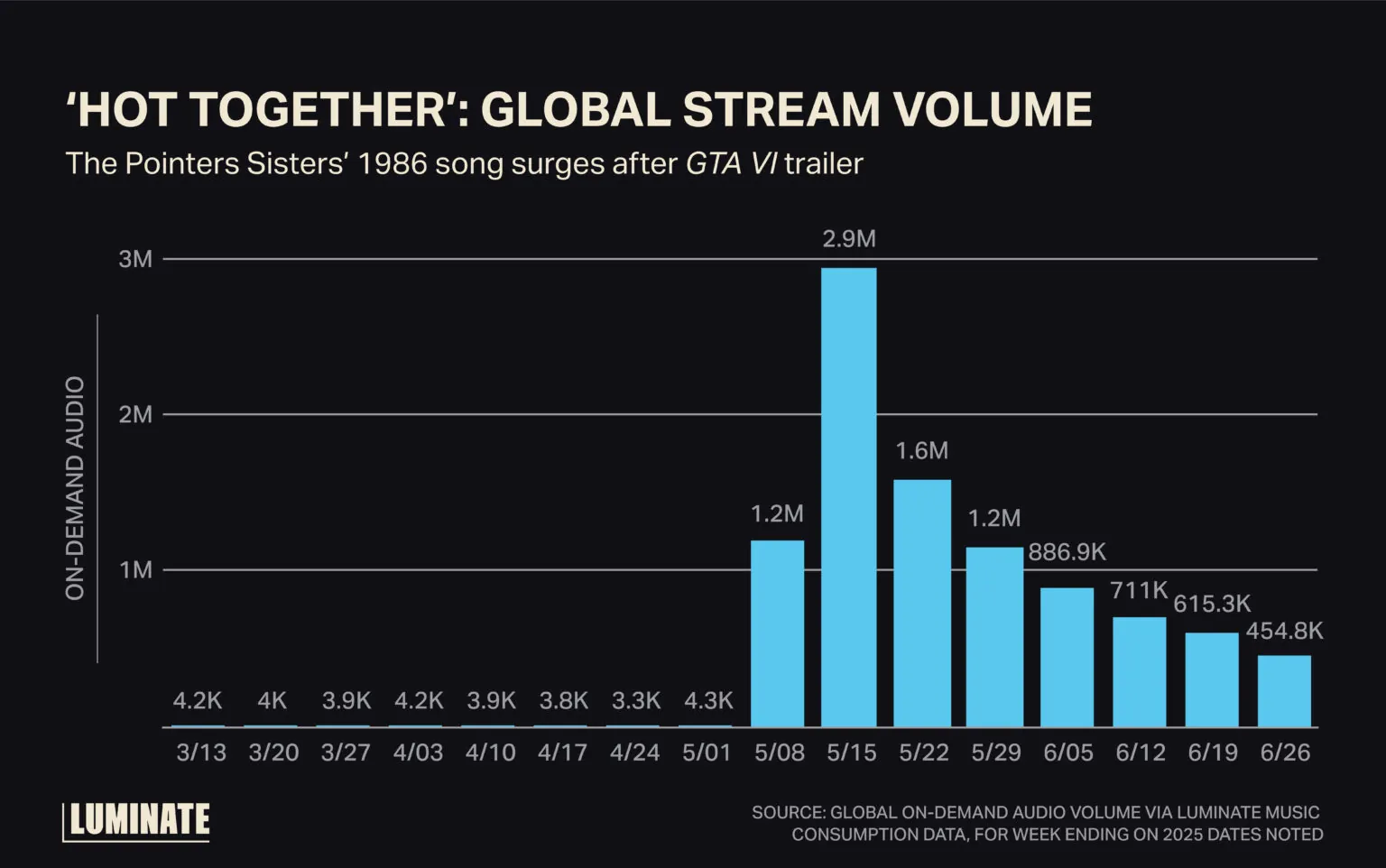Growing your potential revenue sources as an artist is crucial for long-term success. Often overlooked, tapping into the gaming world can help increase your exposure, fanbase, and revenue.
Music and gaming
Diversifying your income streams is key to long-term success as an artist. While most artists think of streaming, merch, and touring first, there lies an often overlooked revenue source: the gaming world.
Music has always been a part of gaming, from catchy menu jingles featured on Wii games to epic orchestral scores. Lately, this crossover has seemingly been taken up a notch.
Games like Fortnite and Roblox have embraced music, and it’s now more central to the gaming experience. For example, Fortnite pulled in a record-breaking 14.3 million players for an in-game concert last year, and now has a dedicated Festival game mode where players perform their favourite tracks on the virtual stage.
While these are more high-profile examples, the ever-growing crossover is clear. If you’re an artist, label, or music marketer, the opportunity can no longer be ignored.
Gamers love music
Gamers aren’t just passive listeners. According to Luminate’s Entertainment 365 survey, 1 in 4 US gamers are music “superfans”. These are the fans that go beyond passive listening, and actively buy vinyl, show up to shows, and invest in merch. They’re the kind of fans who stick around. Essentially, they’re crucial to supporting an artist’s career.
So, why do gamers have such a strong attachment to music? Many superfan gamers form an emotional connection to the soundtracks and themes in their favourite games. Think of the nostalgia in Minecraft’s C418 tracks (at least for me anyway), or how certain themes instantly transport you back to memorable moments.
Luminate says that US gamer superfans spend 260 hours a month on gaming, music, and other media. That’s a massive amount of time your tracks could be playing in the background, and in some cases creating the soundtracks to entire periods of people’s lives. Therefore, there is no wonder that gamers feel an emotional or nostalgic attachment to the music that accompanies their favorite games.
Why gaming matters for artists
The influence of music within gaming is growing. Luminate’s 2025 Midyear Music Report showed that nearly 200 million global music streams from interactive gaming platforms by the end of Q2 alone. This is when users can actively choose and listen to music as part of their gaming experience.
This growth is opening up more opportunities for artists to connect with fans inside the gaming universe. Let’s break it down.
Boosted discovery
Gaming fandom is strong, and when a track is featured in a hit game, the exposure can be huge. Luminate points to Grand Theft Auto as a prime example. Soundtracks have become a renowned part of the game, with its in-game radio stations being so popular that Rockstar curates official Spotify playlists for them.
When the second GTA VI trailer dropped earlier this year, The Pointer Sisters’ 1986 track “Hot Together” went from 300,000 streams in all of 2024 to nearly 9.6 million in just eight weeks. The song peaked with 2.9 million streams in the week following the trailer’s release, and the trailer is already closing in on 127 million views. Not only does this show the potential exposure possible through the gaming industry, but also the willingness from gamers to engage with the associated music too.

More revenue streams
Of course, an increased level of exposure can bring about more streams and higher streaming royalties. However, it doesn’t stop there.
Gamer superfans spend 26% more on entertainment than the average US consumer. That means more gig tickets sold, more merch sales, and more vinyl purchases. That extra willingness to spend can translate directly into higher earnings for artists.
Artists can benefit from sync licensing too. This is where a brand (or game in this instance) pays to license your music for use in their media (ads, games, films, TV shows etc.). This can involve an upfront free plus ongoing royalties, adding a valuable extra income stream.
On top of that, games like Fortnite have pioneered artist-branded in-game purchases. Fans can often buy things such as skins, emotes, and music packs created for artists like Sabrina Carpenter, which helps turn fandom into direct sales. For example, Travis Scott’s Astronomical concert reportedly generated roughly $20 million through in-game item sales.
Opportunities beyond the screen
Some gaming soundtracks escape the console entirely. MIDiA research notes some of the biggest IRL orchestra tours for popular games such as Assassin’s Creed and Final Fantasy VII Rebirth. This helps immerse fans into the gaming worlds they’ve loved, while bringing exposure and revenue to the original composers and artists.
If artists create music specifically for a game, that impact can be expanded further. You can work alongside the game developers to double down with themed merch, and crossover marketing that reaches both gamers and music fan bases. Once again, helping gain exposure to your music, while bringing in revenue.
Press start on your gaming strategy
Gamers are loyal. They champion the music tied to their favourite games and keep listening much later down the road, no matter whether it’s fuelled by nostalgia or just a banging soundtrack.
By integrating your music into the gaming world, artists can tap into new audiences, deepen fan engagement, and unlock new revenue streams. As music continues to overlap into the gaming ecosystem, so will the opportunities for artists.
In a world where attention is one of the most desired currencies, gaming could be a way to keep audiences hooked on your music.
Start distributing your music to streaming platforms for free today with RouteNote.
